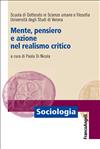
Il contributo focalizza il tema dell’emozione estetica e del nesso causativo che conduce al piacere dell’arte. Piu che attraverso una sistematica rassegna delle bibliografia sul tema, il contributo argomenta la struttura di ipotesi, metodo e risultati sottostante a due percorsi di ricerca-didattica centrati sull’analisi dell’esperienza fenomenica che raccorda le componenti percettive con il complesso sistema di analisi cognitiva dell’opera. L’intenzione e quella di mostrare che e possibile arrivare alla complessita dell’esperienza emozionale estetica anche attraverso una via contraria a quella normalmente assunta nella definizione di emozione come risposta automatica all’esposizione dell’oggetto d’arte.



